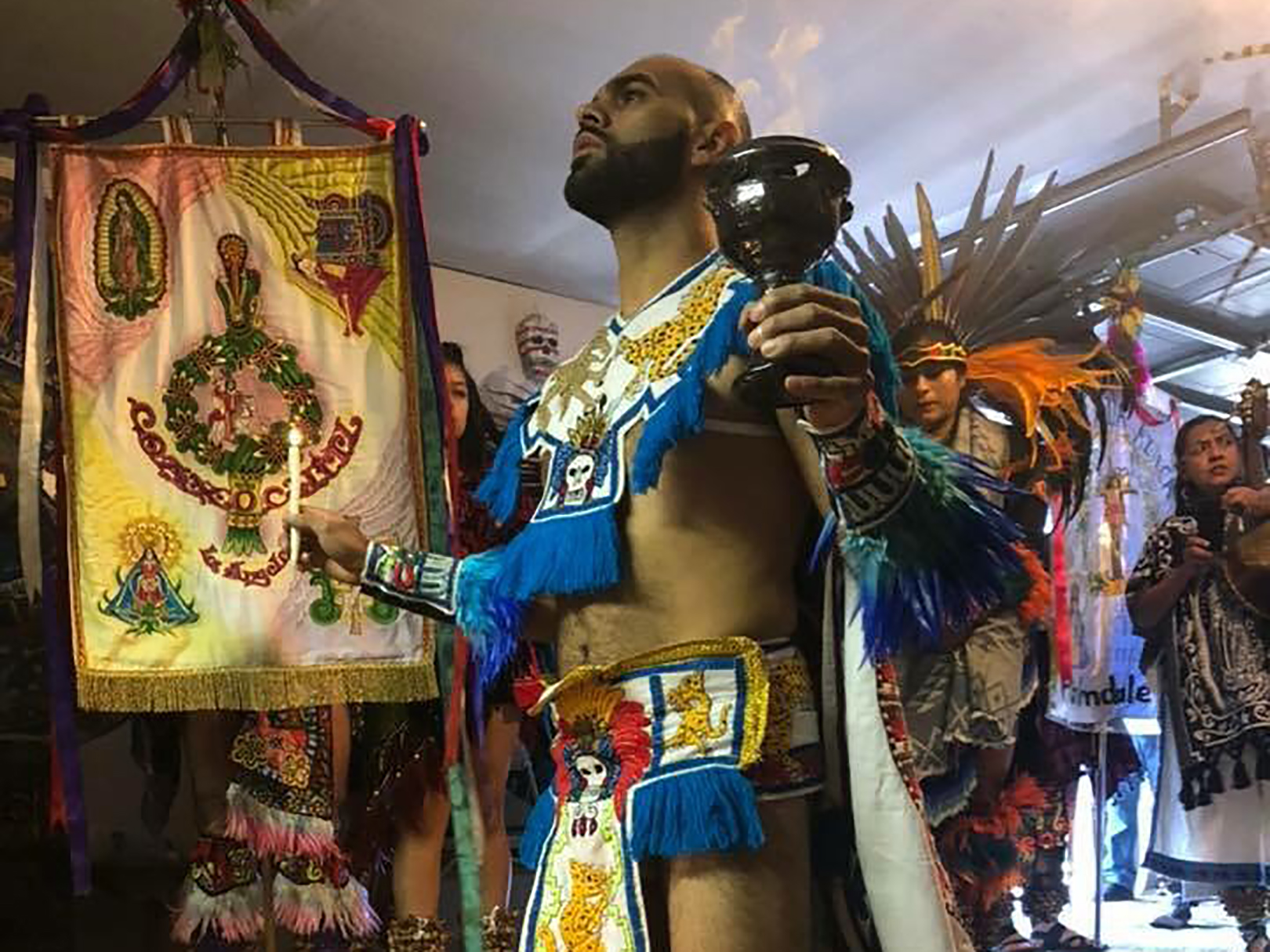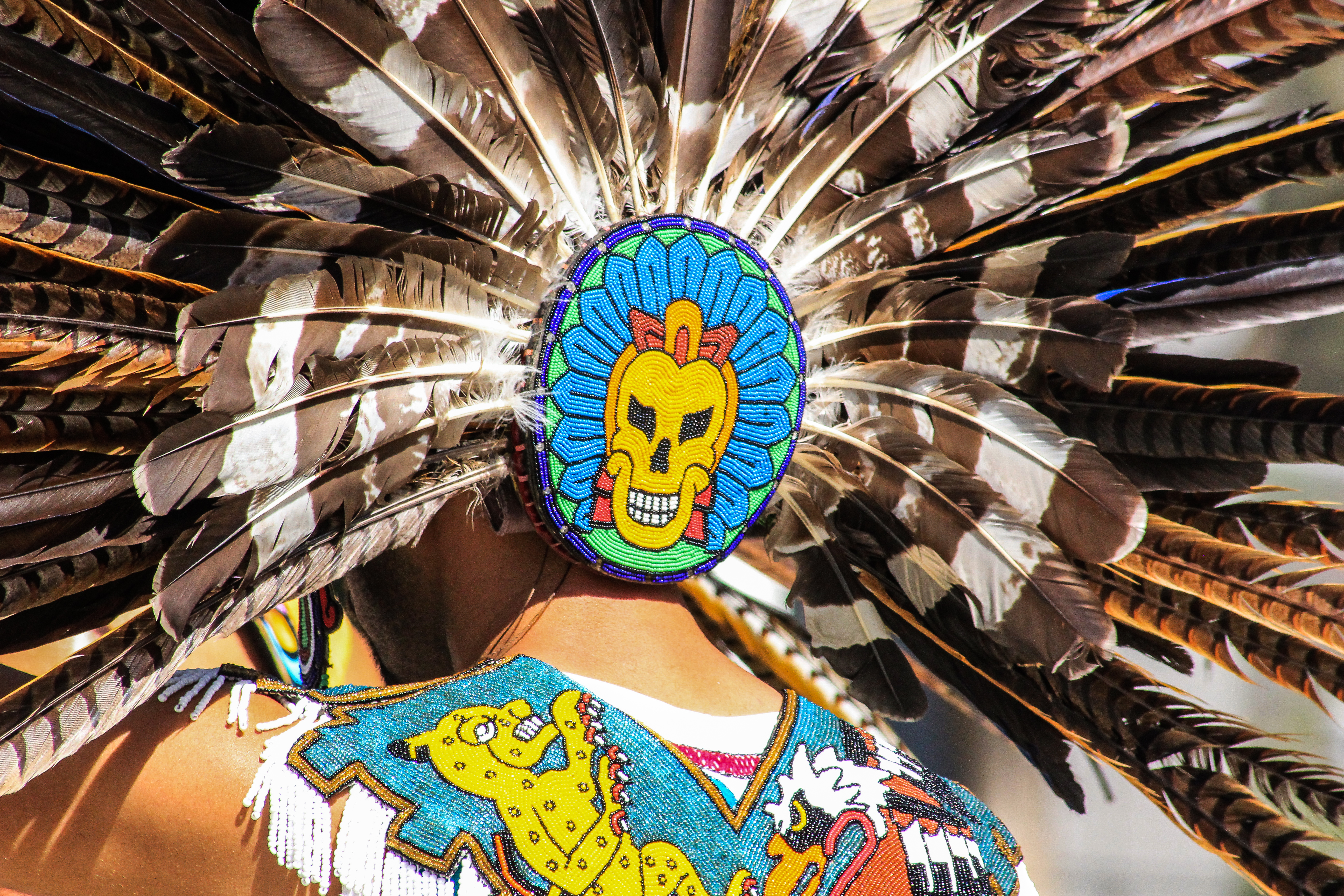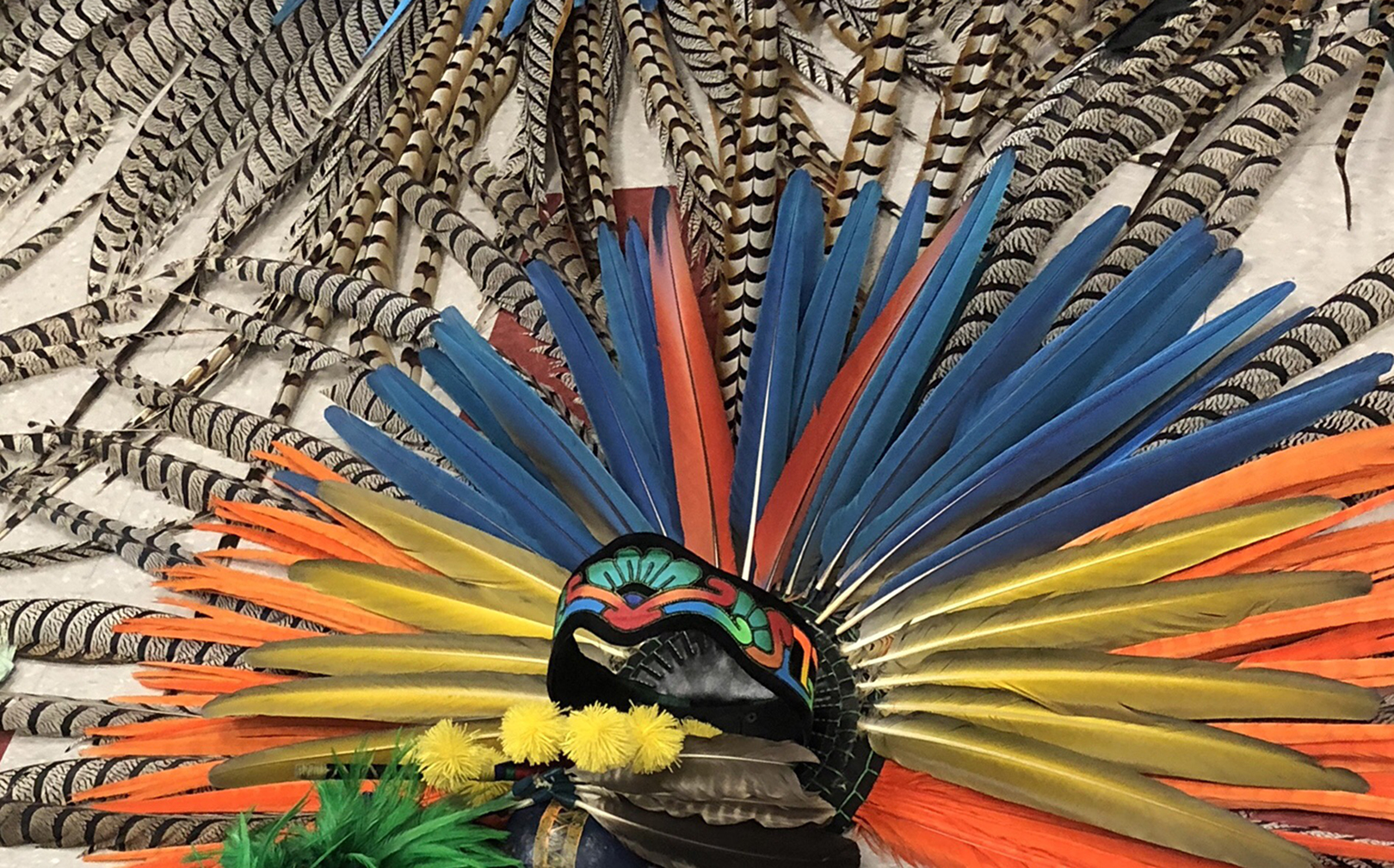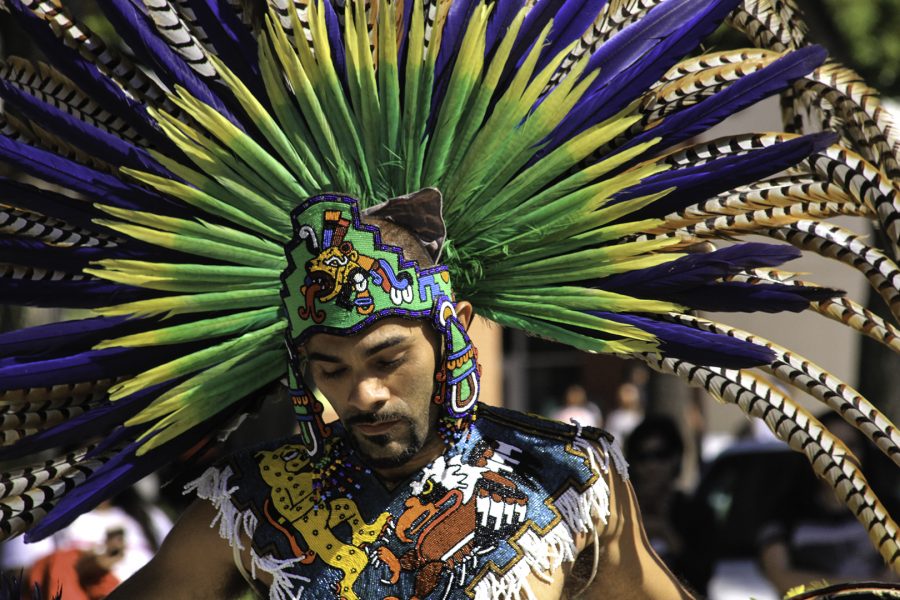As he puts on his atuendo; his headdress, his pechera, his canillas, his mashla, his huaraches, his hueseras, he feels the drums calling him to battle. Each thump coming from the drums prepares him for the batalla that awaits him.
Sergio Juarez Ugalde, 32, steps out to the stage where an anxious crowd waits to see the dance, or the batalla as they call it. Accompanied by his group, La Danza Azteca Toyaacan, Juarez starts to initiate the danza for their animas, the people who have taught them the danza, but have died. In their honor, they begin the battle.

La danza is certainly not the only battle Juarez has endured. He had many battles growing up, especially with his father. Juarez recalls being about eight years old and constantly getting in trouble at school. His father, Sergio Alejandro Juarez, got tired of it. Being the traditional Mexican father he was, he decided to do something about it. He took young Sergio to church and forced him to join the danza with him. Juarez was surrounded by other kids who were also forced by their parents to devote themselves to the Virgin Mary and to la danza azteca.
After many dreadful and involuntary practices, Juarez finally grew to love la danza. “The love came for it like naturally later as you just become like devoted to the traditions and you start learning the meaning of everything as you’re going into it and then you just start becoming passionate about it,” Juarez said.
What was a constant battle with his father turned into a passion he now loves. Now that his father has died, la danza brings Juarez closer to him. He vividly remembers seeing his father dance and the effect his father left on the people around him. Since his father was the leader of the group, Juarez being the eldest son, stepped up and became the new leader both at home and in the group. He suddenly became the new leader of La Danza Azteca Toyaacan and the man of the house.
Losing his father was the most difficult thing Juarez had to face. “It was super hard. I can honestly say that I fell into a depression but I couldn’t show anybody that I was there,” Juarez said. “When I would be in public, I would have to make myself seem very strong even though in the inside I was a disaster.”
Now every Dia de los Muertos Juarez wears his father’s atuendo and dances in his honor. “I’ll put his atuendo on and i’ll dance like he used to dance and it’ll make me feel a certain type of way,” Juarez said.


He emphasized that la danza azteca keeps his dad and other people who have died alive. They do not truly die until someone forgets them. Fast forward to the present and Juarez now is a father to a 4-year-old boy and to a baby girl that’s on the way. He jokingly said that if they do not follow his footsteps into danza, he would die.
Juarez admitted that it would be very difficult to accept the fact that they want nothing to do with danza, but he would still support them in whatever they choose to do. Juarez’s pride and passion for the aztec dance allows him to ignore the people who laugh at what he does. Like in everything in life, there is always someone who tries to shine a negative light to your passion.
Juarez remembered being bullied as a child for his family’s contribution to the aztecs. He recalled kids at school constantly calling him indio, among other stereotypical slurs. “I remind myself that it’s just ignorance,” Juarez said about the people who laugh and judge the aztec dancers. He said he believes that when he comes across people who think the aztec dance is a joking matter, it is better to educate them and explain why they shouldn’t be laughing.
Juarez reminded people to not judge without knowing. “If you ever have questions or you ever see anybody that’s different, I suggest you ask versus like feeling like that you know,” Juarez said.
To the people who want to join an aztec dance group or simply learn the basics, Juarez encourages them to do so and said all you need is ganas, or desire.
His group, La Danza Azteca Toyaacan, hosts free classes every Wednesday at 7:30 at La Puente Community Center. He remembered his dad always saying, “No one should have to pay to learn their own culture,” which is why Juarez does what he can to make the classes free. Juarez said it is important for him to keep on dancing and spreading his culture in order to keep it alive.
“If I don’t do this, we’re just going to completely wipe any speck of ourselves out,” Juarez said. “I have to keep doing this so that we keep multiplying.”
Aside from being an aztec dancer, Juarez also has his own company called Bridgetown Floor and Wall, which he started when he was 21. He named it after his hometown La Puente.
He explained that the discipline from danza comes in handy with other things, especially with construction. Juarez first worked in construction with his dad and now has his own team and just applied to get licensed and make it an official construction company.




Eric Tapia (Zochipili) • Sep 26, 2021 at 5:08 pm
This guy is great I first meet him some 2 years ago I never really was able to play with him till like 2 weeks ago at Chicano park we played the drum together he is awesome he’s a great guy and he dances super good thank you bro you might not know this but you taught me a lot in danza!!